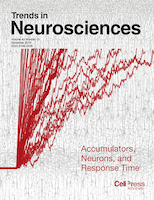
Brain and Behavior
Scope & Guideline
Connecting Minds: Where Neuroscience Meets Behavior.
Introduction
Aims and Scopes
- Neuroscience and Neurobiology:
Research exploring the underlying biological mechanisms of brain function, including neurophysiology, neurogenetics, and neuroplasticity. This area seeks to understand how brain structures and neurochemical processes influence behavior and cognitive functions. - Psychological Disorders and Treatments:
Investigations into the etiology, diagnosis, and treatment of various psychological disorders such as depression, anxiety, PTSD, and schizophrenia, emphasizing evidence-based interventions and innovative therapeutic approaches. - Cognitive Psychology and Neuropsychology:
Studies examining cognitive processes such as memory, attention, perception, and decision-making, often utilizing neuroimaging and electrophysiological methods to understand the neural correlates of these functions. - Behavioral and Social Neuroscience:
Research that integrates behavioral science with neuroscience to explore the social and emotional aspects of behavior, including studies on empathy, aggression, and social cognition. - Clinical and Translational Research:
Focus on translating basic neuroscience findings into clinical applications, evaluating the efficacy of interventions, and understanding the implications of neurological and psychological disorders on public health.
Trending and Emerging
- Neuroimaging and Neurofeedback:
There is a growing emphasis on using advanced neuroimaging techniques and neurofeedback as tools for both research and therapeutic applications, particularly in understanding cognitive processes and in the treatment of various psychological disorders. - Mendelian Randomization and Genetic Studies:
An increase in studies employing Mendelian randomization and genetic analyses to explore the causal relationships between genetic predispositions and psychological or neurological conditions, highlighting the importance of genetic factors in understanding mental health. - Mind-Body Interventions:
Research on the efficacy of mind-body interventions such as mindfulness, meditation, and yoga in improving mental health outcomes is gaining traction, reflecting a holistic approach to mental health that integrates psychological and physiological perspectives. - Digital Therapeutics and Technology Integration:
The integration of technology in mental health treatment, including the use of smartphone applications, telehealth, and virtual reality for therapy, is emerging as a prominent area of focus, addressing accessibility and engagement in mental health care. - Impact of COVID-19 on Mental Health:
Research exploring the psychological impact of the COVID-19 pandemic, including studies on stress, anxiety, and changes in mental health care practices, is increasingly prevalent, reflecting the urgent need to address mental health in pandemic contexts.
Declining or Waning
- Traditional Pharmacological Approaches:
There is a noticeable shift away from studies solely focused on traditional pharmacological treatments, with more emphasis now on integrative and holistic approaches such as psychotherapy, lifestyle interventions, and neurofeedback. - Basic Animal Studies:
Research relying heavily on animal models without clear translational implications for human health is becoming less frequent. There is an increasing demand for studies that directly link animal findings to human conditions or that utilize human participants. - Single-Domain Studies:
The trend is moving away from research that only focuses on a single aspect of brain function or behavior. There is a greater interest in multidimensional studies that consider the interplay between various cognitive, emotional, and social factors. - Epidemiological Studies without Interventional Focus:
Epidemiological studies that do not offer insights into intervention or treatment strategies are less common. The journal now favors research that not only identifies correlations but also proposes actionable solutions.
Similar Journals

Frontiers in Systems Neuroscience
Exploring the intricate connections of the brain.Frontiers in Systems Neuroscience is a premier open-access journal published by FRONTIERS MEDIA SA, dedicated to advancing the understanding of the complex systems that underpin neural function and behavior. Established in 2007 and based in Switzerland, this journal has gained recognition for its rigorous peer-reviewed articles that contribute significantly to the fields of Cellular and Molecular Neuroscience, Cognitive Neuroscience, and Developmental Neuroscience. As of 2023, it proudly holds a Q2 ranking in several neuroscience categories, reflecting its high impact and relevance in the academic community. The journal is accessible to researchers, professionals, and students worldwide, providing a platform for innovative research while promoting collaborative scientific dialogue. With a commitment to open access, Frontiers in Systems Neuroscience ensures that groundbreaking findings are readily available to enhance knowledge sharing across the globe. This makes it an essential resource for anyone looking to stay at the forefront of neuroscience research.

BEHAVIOURAL BRAIN RESEARCH
Illuminating the Interplay Between Mind and BrainBEHAVIOURAL BRAIN RESEARCH, published by Elsevier, is a leading scholarly journal that has been at the forefront of research in Behavioral Neuroscience since its inception in 1980. With an ISSN of 0166-4328 and an e-ISSN of 1872-7549, this journal caters to a global audience of researchers and professionals keen on exploring the intricate relationships between behavior and neural processes. As of 2023, it holds an impressive Q2 ranking within its category, showcasing its significant impact with a Scopus rank of #28 out of 88 in the field, placing it in the 68th percentile. While the journal does not offer open access, it remains accessible through institutional subscriptions, ensuring that its high-quality research is disseminated effectively. The journal's commitment to advancing knowledge in behavioral neuroscience makes it an indispensable resource for those looking to delve deep into the complexities of brain-behavior interactions and foster innovative approaches in both research and clinical applications.

Social Neuroscience
Exploring the Mind's Social LandscapeSocial Neuroscience is a premier academic journal dedicated to advancing the interdisciplinary field that lies at the intersection of social psychology, behavioral neuroscience, and developmental studies. Published by ROUTLEDGE JOURNALS, TAYLOR & FRANCIS LTD, this journal has made significant strides since its establishment in 2006, with a convergence period extending to 2024. It regularly features innovative research articles that explore the neural basis of social behaviors and the impact of social interactions on brain function. Holding esteemed rankings in Scopus, including Q2 status in both Development and Social Psychology categories, it appeals to a broad array of scholars and practitioners keen on understanding human behavior through a neuroscientific lens. The journal's commitment to fostering critical discussions and publishing impactful research makes it an essential resource for professionals, researchers, and students alike who seek to deepen their understanding of the complex interplay between social processes and neural mechanisms.

CORTEX
Connecting Minds: Where Neuroscience Meets InnovationCORTEX is a premier international journal published by Elsevier Masson, focusing on the cutting-edge areas of cognitive neuroscience, psychology, and neurology. With an impressive impact factor that places it in Q1 quartiles across multiple categories such as Cognitive Neuroscience and Neuropsychology, this journal serves as a vital resource for researchers, clinicians, and students alike. Established in 1964, CORTEX has continued to excel in disseminating high-quality scholarly work, offering insights that significantly enhance our understanding of the brain's functioning and behavior. Although not an open-access publication, it provides various access options to ensure the dissemination of knowledge is as wide-reaching as possible. As the field of cognitive psychology evolves, CORTEX remains at the forefront, fostering an environment for interdisciplinary collaboration and innovation. Researchers seeking to stay engaged with the latest advancements will find CORTEX an indispensable tool for their professional development.

Behavioral and Brain Functions
Shaping the Future of Neuroscientific InquiryBehavioral and Brain Functions is a leading Open Access journal published by BMC, dedicated to advancing the field of behavioral neuroscience, cognitive neuroscience, and biological psychiatry since its inception in 2005. This esteemed journal, based in the United Kingdom, has established itself as a vital resource for researchers and professionals, boasting a remarkable influence demonstrated by its Q1 and Q2 rankings across multiple relevant categories. With its commitment to providing unrestricted access to high-quality research, the journal facilitates the dissemination of significant findings in understanding the complex interactions between behavior and brain function. The journal ranks impressively within the Scopus database, positioning itself among the top-tier publications in its categories, making it an essential platform for academic discourse and innovation. As it converges through 2024, Behavioral and Brain Functions continues to play a crucial role in shaping the forefront of neuroscientific inquiry, inviting contributions that challenge our understanding and promote further exploration in these dynamic fields.

EXPERIMENTAL BRAIN RESEARCH
Fostering Innovative Discoveries in Experimental NeuroscienceEXPERIMENTAL BRAIN RESEARCH is a renowned journal published by SPRINGER, dedicated to advancing understanding in the field of neuroscience. With a history dating back to 1966, this journal offers valuable insights into the mechanisms of brain function and neurological disorders, making it a vital resource for researchers, professionals, and students alike. While it currently holds a Q3 classification in the field of Neuroscience (miscellaneous) and ranks #73 out of 113 in Scopus's General Neuroscience category, it continually contributes to fostering innovative research and collaborative dialogue. The journal is not open access, ensuring that although content is subscription-based, it maintains a high standard of peer review and scholarly rigor. By covering a breadth of topics relevant to both experimental and theoretical aspects of brain research, EXPERIMENTAL BRAIN RESEARCH serves as an essential platform for disseminating cutting-edge discoveries and theories in the dynamic realm of neuroscience.

Frontiers in Human Neuroscience
Championing Open Access in Neuroscience ResearchFrontiers in Human Neuroscience is a premier open access journal published by FRONTIERS MEDIA SA, dedicated to advancing the understanding of the complexities of human neuroscience. With an ISSN of 1662-5161, the journal has established its prominence in various fields, achieving a Q2 ranking in categories such as Behavioral Neuroscience, Neuropsychology and Physiological Psychology, and Psychiatry and Mental Health as of 2023. Since its inception in 2008, Frontiers in Human Neuroscience has consistently contributed to the scholarly dialogue by offering a platform for innovative research that bridges the gap between neuroscience and behavioral science. The journal's rigorous peer-review process and commitment to open access ensures that findings are readily available, promoting collaboration and progress within the academic community. With an impact on neuroscience disciplines, it stands at the forefront of the field, inviting researchers, professionals, and students alike to engage with cutting-edge studies and developments. The journal's address is located in Lausanne, Switzerland, where it continues to flourish as a hub for neurobiological exploration.

NEUROSCIENCE LETTERS
Connecting Knowledge with Neurological Innovation.NEUROSCIENCE LETTERS is a distinguished journal published by ELSEVIER IRELAND LTD, focusing on disseminating impactful research across the field of neuroscience. With its ISSN 0304-3940 and E-ISSN 1872-7972, the journal serves as a vital platform for researchers, professionals, and students aiming to explore the complexities of nervous system function and related disorders. Since its inception in 1975, NEUROSCIENCE LETTERS has contributed significantly to the field, currently positioned in the Q3 category for Miscellaneous Neuroscience, with a respectable Scopus rank of 52/113, placing it in the 54th percentile among its peers. The journal is published in Ireland and offers a comprehensive repository of scientific insights, methodologies, and innovative findings that advance our understanding of neurological phenomena. While not an open-access journal, it remains an essential resource for the latest advances in neuroscience research and the academic community’s collective knowledge.

Frontiers in Behavioral Neuroscience
Exploring the Neural Roots of Behavior.Frontiers in Behavioral Neuroscience is a distinguished journal published by FRONTIERS MEDIA SA, specializing in the intricate relationship between behavior and the underlying neural processes. Established in 2007, this Open Access journal, based in Switzerland, aims to disseminate high-quality, peer-reviewed research that spans both Behavioral and Cognitive Neuroscience, as well as Neuropsychology and Physiological Psychology. With an impressive ranking in the top quartiles of these categories—Q2 in Behavioral and Cognitive Neuroscience and Q1 in Neuropsychology—this journal plays a pivotal role in advancing the understanding of complex behavioral phenomena through a neuroscientific lens. The journal's commitment to open accessibility ensures that groundbreaking findings are available to a wide audience, facilitating collaboration and innovation within the scientific community. As the field continues to evolve, Frontiers in Behavioral Neuroscience remains at the forefront, supporting researchers, professionals, and students alike in their pursuit of knowledge and understanding in this dynamic discipline.

TRENDS IN NEUROSCIENCES
Advancing Knowledge in Neural ProcessesTRENDS IN NEUROSCIENCES, published by CELL PRESS, is a leading journal in the field of neuroscience, offering cutting-edge insights and important developments in the rapidly evolving landscape of brain research. With an impressive Impact Factor and ranking in the top quartile (Q1) of the category for Neuroscience (miscellaneous), it is positioned as a vital resource for researchers and professionals seeking to stay abreast of the latest discoveries and trends from 1978 to the present. Specifically ranked #3 out of 113 in General Neuroscience by Scopus, this journal promotes the interdisciplinary exchange of ideas and knowledge, making it an essential platform for students and experienced scholars alike. Although it is not an Open Access journal, its value lies in its rigorous peer-review process and commitment to maintaining the highest standards of academic integrity. By continuing to explore the complexities of neural processes and behavior, TRENDS IN NEUROSCIENCES plays a crucial role in shaping the future of neuroscience research and education.